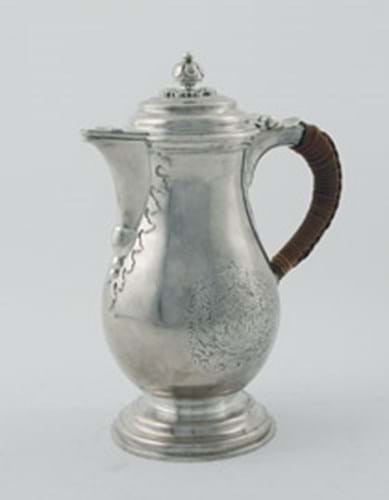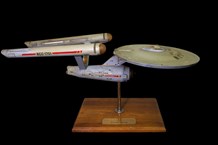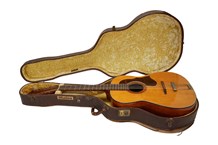
The collection, comprising both the former stock of Jane Penrice How and some private pieces, will be sold in around 350 lots in the autumn with a projected take in excess of £300,000.
Mrs How, who died on June 25, 2004 at the age of 89, was a legendary figure in the silver world: remembered as both an expert on early silver and as an eccentric who did not suffer fools gladly.
Known as 'Ben' to her friends, her enthusiasms were wide-ranging: wine, opera, fishing, shooting, edged weapons, beekeeping, dogs, cricket and motor cars. A diminutive figure in her tweed twin-sets, she was often accompanied around St James's by her huge Old English mastiffs - a breed she helped save from extinction - including Don Juan, with whom she twice won Best of Breed at Crufts.
In her 80s, she sold a much-loved Jaguar SS100 to Alan Clark in order to buy the latest Bentley turbo. Peeping over the dashboard, she was known to take on all comers at traffic lights.
Her collection of early arms and armour - including a previously unknown group of medieval swords and spurs - will go under the hammer at Bonhams in Knightsbridge on July 25.
But Mrs How established her fearsome reputation as a leading expert on early silver and English spoons in particular. With her husband, Commander George Evelyn Paget How (whom she met when he was cataloguing the Ellis spoon collection in 1935), she produced the three massive volumes that comprise English and Scottish Silver Spoons Medieval to Late Stuart and Pre-Elizabethan Hallmarks on English Plate that was privately printed in 1952.
She was also a long-standing member of the Antique Plate Committee at Goldsmiths Hall where her forthright opinions were aired with some regularity.
The essence of the assemblage Woolley & Wallis will sell in a single-owner catalogue on Tuesday, October 30 (preceding the regular autumn sale of silver and jewellery from October 31-November 1) is a large holding of early spoons to be sold in around 280 lots. Alongside early forks and sets of early 18th century knives are a large group of provincial trefids.
Some have previously undocumented marks: one is thought to have been made in Kilkenny.
There are also some very interesting hollowares, mainly from the second half of the 17th century and the early years of the 18th century, including a particularly fine and large Queen Anne period Glasgow quaich.




